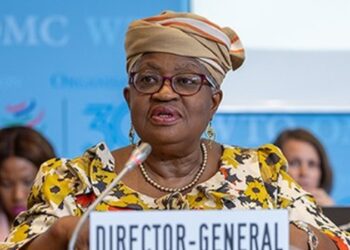The national body of Bajju Development Association (BADA) and Federated Kurama Association in Kaduna state had on different occasion disagreed with ongoing plans by the state government to restructuring existing chiefdoms and emirates.
The Associations, expressed their fears that the plan to restructure the traditional councils based on town or location would likely spark protest and create serious security challenge in the state.
The national youth leader, BADA, Comrade Habila kayit, stated that “while we state our resolve to reject in totality this autocratic move to tamper with our revered traditional institutions, the role of traditional rulers in the area of stabilizing the polity, peace building and uniting the people for community development cannot be over emphasized,” said the statement.
“It is necessary to state that the creation and composition of the chiefdoms were done by the Kaduna State government under the leadership of Brigadier General Ja’afaru Isa (Rtd) in 1995 and former Governor Ahmed Makarfi in 2000. These were done in good faith to reflect the wishes of the people which has aided in the peace building recorded in the state over the years,” the statement said.
According to the President of Kurama Association, Dauda Barau, said that the review could be used to either abolish or place chiefdom under an arrangement that makes them subservient to another ethnic group.
Barau said: “This is because the committee has not made any attempt to consult and engage extensively with stakeholders or call for memorandum to get citizens input.
“This leaves us with one conclusion, that the committee was set up just to fulfill formalities, but the aim and outcome of the review has been pre-determined.
“We equally observed that the composition of six-man committee lacks the competence to adequately understand the divers and complex historical antecedents, cultural affinities and other peculiarities of the chiefdoms.”
He also pointed out that the proposed action contravenes the 2007 United Nations Declaration on the Rights of Indigenous Peoples.
He noted that Article 8 (1) states that: Indigenous peoples and individuals have rights not to be subjected to forced assimilation or destruction of their culture.”
“Section 8 (2) further requires the state to provide effective mechanism for prevention of any action that may deprive ethnic nationalities their integrity as distinct peoples or their cultural values or ethnic identities.
“In our case, unfortunately, is out to do the contrary.” Said Barau. The Bajju and Kurama held from Zangon Kataf and Lere LGAs of the state, respectively.
The Kaduna state governor, Nasir El-rufa’i, has on last month, constituted two committees in order to review the existing chieftaincy system in the state. The first is titled “Appointment of Committee to Review the Existing Chieftaincy System in the state” and the second emanated from a body called the “Committee to Review the Existing Chieftaincy in the State Sub-Committee on the Nomenclature.”
The mandated or terms of reference of the main committee are, to examine the existing nomenclature of the graded chiefs which emphasizes ethnic identity and propose new ones based on town/location of the chiefdom taking due cognizance of the historical antecedens of the chiefdom; to propose alternative system of boundary delineation between Emirate/Chiefdom in the state to mitigate the incidence of incessant boundary disputes, among others.
The committee has Alhaji Jafaru Sani, the Commissioner, Local government and Chieftaincy Affairs as Chairman, with Ibrahim Hussaini, Director General, Kaduna State Geographic Information Service and Chris Umar, Solicitor General/ Permanent Secretary, Ministry of Justice as members.
Others include Ibrahim Sambo, Permanent Secretary, Ministry of Rural and Community Development; Aisha Dikko, Special Adviser, Legal Matters and Stephen Joseph, Permanent Secretary, Ministry of Local Government and chieftaincy Affairs.
Associations cautions El-rufa’i over restructuring chieftaincy in Kaduna State
0
Leave a Reply Cancel reply
BROWSE BY CATEGORIES
- #SmartLagos
- Basketball
- Beauty
- Boxing
- Breaking
- Business
- Careers
- Crime
- Default
- Education
- Entertainment
- Event
- Fashion
- Featured
- Football
- Gaming
- Gist
- Golf
- Health
- Inspirational Patience
- Interview
- Investigative
- Law
- Lifestyle
- local
- MetroMan
- MetroPerson
- metroplus
- MetroProfile
- Movies
- Music
- MUSIC
- New Music
- News
- nolly wood
- Nollywood
- Novels
- Odawood
- Opinion
- Parenting
- Photos
- Politics
- Press Release
- Relationship
- Religion
- Scandal
- Security
- Sex
- Society
- Sports
- Technology
- Travel
- TV
- Videos
- Weird
- Wheels
- World
BROWSE BY TOPICS
#COVID19Nigeria
#EndSARS
Adams Oshiomhole
Akinwunmi Ambode
APC
ASUU
atiku
Atiku Abubakar
Big brother Naija 2020
boko haram
Buhari
Bukola Saraki
CBN
court
COVID-19
davido
ECOWAS
Edo Election
Edo State Election
efcc
Featured
FG
Goodluck Jonathan
gunmen
INEC
Kayode Fayemi
Lagos
Lagos State
MohBad
Muhammadu Buhari
NCDC
NDLEA
Niger
Nigeria
NLC
Obaseki
Otunba Gbenga Daniel
PDP
police
President Buhari
Sanwo Olu
senate
tinubu
wike
Yemi Osinbajo
© Copyright MetroNews NG 2020. All rights reserved.








